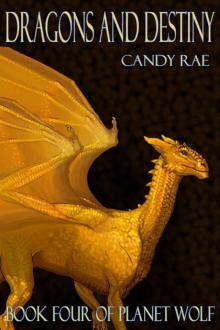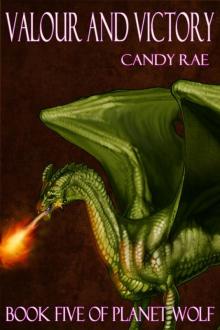Wolves and War Read online
Page 6
For the newly-orphaned Tara Sullivan, the girl to whom Kolyei was attracted, these first weeks were uneasy ones.
Although the nights were warm with a soft breeze she wasn’t sleeping well. She was sharing tent-space with other girls her age or a little older. Their chatter unsettled her; they talked of the future and of their own families. At this point in Tara’s life, she didn’t have any plans and had no family left to chatter about. The girls largely steered away from talking about her recent loss so Tara found herself, on the whole, ignored.
She was part of a team whose responsibility it was to gather seaweed from the shore and to go wood gathering in the area next to the trees.
The team was under the command of a bright-faced lad of sixteen, therefore almost grown-up to Tara’s twelve-year-old eyes, whose mission in life seemed to be to lead the most successful work-group in the colony. Bill, for that was his name, knew what had happened during the space storm when Tara’s parents and little brother had died and was kind to her in his own way, keeping her beside him as they toiled on the beach and at the fringes of the woods. The two talked about generalities and Bill did not mention his own family.
As more cabins were built and the temporary campsite began to empty, Tara remained.
Stuart McIntosh ordered that not all the cabins should be built in the immediate settlement area. Streams and rivers were plentiful and as the majority of the colonists were from farming stock they were naturally keen to branch out and to stake their claims in the surrounding countryside.
Once the botanists and other scientists had found out which native plants were poisonous and which were not, there was little to stop them. Indeed, the remaining food supplies taken from the Argyll were pretty well finished by now and there was little choice but to sample the native edibles.
Test fields were springing up. One ground-root in particular became very popular. It grew in profusion everywhere you looked and was packed full of nutrients and vitamins. Uncooked it was harsh on the taste buds but when heated had a pleasant, if unfamiliar, taste.
All cultivation was done by hand; even children as young as ten were expected to work part of the day. Willing teams of colonists tended the embryo crops. The wild cereals were being studied with a view to finding suitable edible varieties that could be grown to mill down for flour.
Small fruit trees and bushes were transplanted from the woods nearby to form baby orchards. Tara’s work-group moved from the beach and spent many hours gathering the young plants.
Apart from the loneliness, Tara was far more content than she should have been.
Perhaps the dreams had something to do with it. The haunted nightmares about that last day together with her family began to disappear and she was sleeping soundly each night. Colour came back to her cheeks. The medics put the improvement down to fresh air, hard work and time.
Tara knew better.
At the end of the second month, Tara moved from the camp to a small cabin with a group of six other children who had neither parents nor close family. In the tiny hamlet were two other cabins.
A river rippled at the hamlet’s edge that provided water and also fish that the children learned to tickle out and which provided a tasty alternative to their, as yet, limited diets.
The two other families kept an eye on the children in the third cabin, which had two adults in nominal charge, an elderly lady who had lost her family during the space storm and another younger woman who was not best pleased with her appointment as assistant foster mother to seven children.
Tara did not like her and grew increasingly unhappy with the situation. When the woman decided that enough was enough and left one night, she shrugged her shoulders and got on with it. She was doing the majority of the chores anyway she reasoned and said as much to the other adults in the hamlet. The desertion was not reported to the authorities.
The eight of them managed well enough. If Tara wasn’t exactly happy, she wasn’t massively unhappy either.
* * * * *

_preview.jpg) Ephemeral Boundary (T'Quel Magic 1)
Ephemeral Boundary (T'Quel Magic 1) Wolves and War
Wolves and War Ambition and Alavidha
Ambition and Alavidha Homage and Honour
Homage and Honour Conflict and Courage
Conflict and Courage Dragons and Destiny
Dragons and Destiny Valour and Victory
Valour and Victory Paws and Planets
Paws and Planets